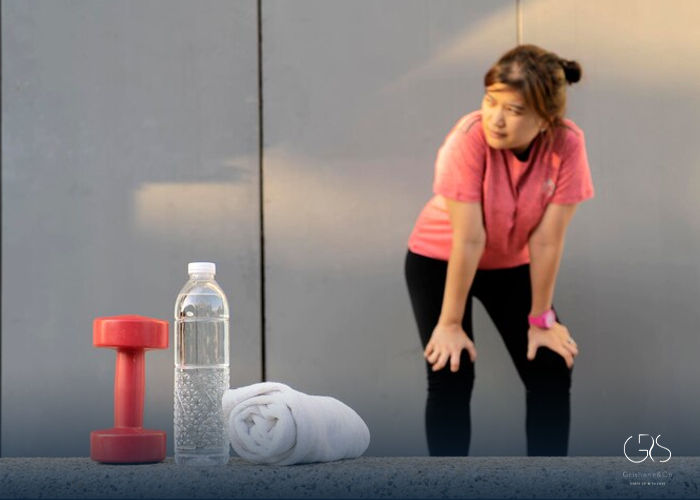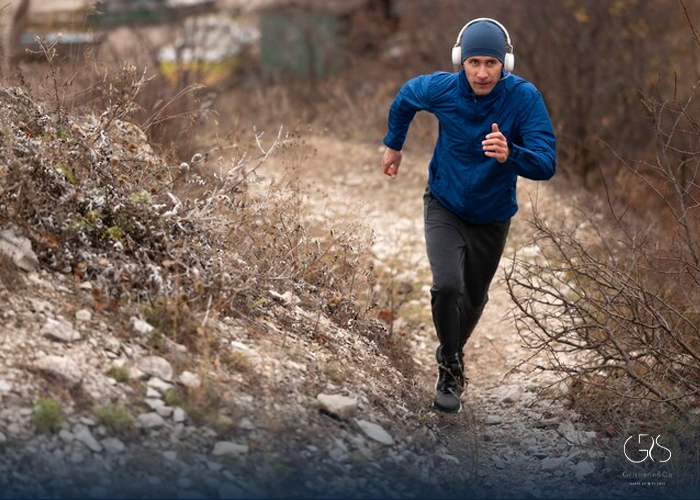Diarrhea after exercising is a common yet often overlooked issue that can affect individuals of all fitness levels. While physical activity is generally associated with improved digestive health, some people experience gastrointestinal discomfort after working out. This phenomenon has sparked conversations within the medical and fitness communities, prompting a deeper exploration into its potential causes and solutions.
Understanding the Phenomenon
Statistics from the American College of Gastroenterology revealed that up to 30% of athletes experience gastrointestinal symptoms, including diarrhea, during or after strenuous exercise . The prevalence of this issue highlights the need for a comprehensive understanding of why it occurs and how it can be effectively managed.

Potential Causes
Several factors may contribute to diarrhea after working out. Intense physical activity diverts blood flow away from the digestive system to the muscles, which can lead to decreased nutrient absorption and increased intestinal permeability, potentially resulting in diarrhea (NCBI). Furthermore, dehydration, dietary choices, and pre-existing gastrointestinal conditions can exacerbate this issue, affecting individuals in various ways.
Dehydration and Electrolyte Imbalance
Engaging in rigorous exercise without proper hydration can lead to dehydration and an imbalance of electrolytes, which may manifest as diarrhea. Electrolytes such as sodium, potassium, and magnesium play crucial roles in maintaining fluid balance within the body. When these levels are disrupted, it can impact gastrointestinal function and contribute to digestive issues (Mayo Clinic).
(Read more about hydration and exercise)

Dietary Factors
The consumption of certain foods and beverages before exercise can also influence digestive health. High-fiber or fatty foods, as well as stimulants like caffeine, may trigger gastrointestinal distress when combined with physical exertion. Additionally, individuals with sensitivities or intolerances to specific substances, such as lactose or gluten, may experience diarrhea as a result of dietary triggers.
Gastrointestinal Conditions
Pre-existing gastrointestinal disorders, such as irritable bowel syndrome (IBS) or inflammatory bowel disease (IBD), can be exacerbated by intense physical activity, leading to symptoms like diarrhea. This population requires special attention, as their exercise routines must be tailored to minimize gastrointestinal distress while still promoting overall health and well-being (CCFA).
Perspectives and Individual Experiences
The impact of diarrhea after working out extends beyond physical discomfort; it can also have psychological and emotional repercussions. Individuals may feel embarrassed, frustrated, or discouraged, potentially leading to a reluctance to engage in further physical activity. It is essential to recognize and address these emotions, as they may impact an individual’s overall well-being and relationship with exercise.
From a professional perspective, fitness trainers and healthcare providers should be equipped to offer guidance and support to individuals experiencing post-exercise diarrhea. Understanding the diverse factors contributing to this issue enables professionals to tailor exercise and dietary recommendations to better suit individual needs.
Potential Solutions and Management Strategies
For those experiencing diarrhea after working out, there are several strategies that may help alleviate symptoms and prevent their recurrence. Hydration plays a critical role, emphasizing the importance of drinking water before, during, and after exercise. Additionally, paying attention to pre-workout meals and snacks, opting for easily digestible foods, and avoiding known triggers can significantly impact digestive comfort during physical activity.
In the case of individuals with pre-existing gastrointestinal conditions, seeking guidance from a healthcare provider or a registered dietitian specializing in gut health is crucial. Tailoring exercise regimens and dietary choices to accommodate specific digestive sensitivities can enable individuals to continue reaping the benefits of exercise while minimizing gastrointestinal distress.
(I suggest reading about foods for diarrhea)
Conclusion
Diarrhea after exercising is a multifaceted issue with diverse influencing factors and individual experiences. By acknowledging the potential causes and impact of this phenomenon, both on a physical and emotional level, individuals, healthcare professionals, and fitness experts can collaborate to cultivate a supportive and inclusive environment for all individuals engaging in physical activity. Through this collective effort, it is possible to empower individuals to prioritize their overall well-being while pursuing an active and healthy lifestyle.
Sources
- National Center for Biotechnology Information, Dietary Nitrate Supplementation and Exercise Performance
- Mayo Clinic, Dehydration
- Crohn's & Colitis Foundation, What is IBD?
- WebMD, Diarrhea










